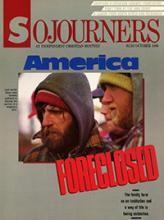Many of us have grown up with an image of the Supreme Court as the guardian of our constitutional rights. We've thought of the court as the one branch of government where the rights of minorities, even unpopular ones, could be safeguarded from the incursions of a hostile or apathetic majority.
That image was formed during the period from the mid-1950s to the early 1970s, when the Supreme Court, and the rest of the federal judiciary, expanded the arena of liberty for blacks and other racial minorities, women, prisoners and those accused of crimes, and political dissenters of all stripes. During that period the court quite deliberately went about the business of interpreting the time-honored constitutional rights of free speech, privacy, and due process in ways that accounted for the changed circumstances of American life.
But in the Reagan era, all that is clearly changing. As Reagan appointees come to dominate the lower federal courts and exert increasing influence in the high court, the arena of liberty is again shrinking beneath our feet.
Ironically enough, it was while this year's Fourth of July festivities were gearing up that the Supreme Court handed down a decision that is a sign of things to come. On July 1 the court upheld the constitutionality of a Georgia law that made sodomy (homosexual or heterosexual) a crime punishable by up to 20 years in prison. The law had been challenged by a male homosexual arrested for breaking it in his own bedroom. In a 5-4 decision, the court chose to ignore the possible application of the law to heterosexuals and instead focused narrowly and harshly on the question of homosexual activity.
Read the Full Article

